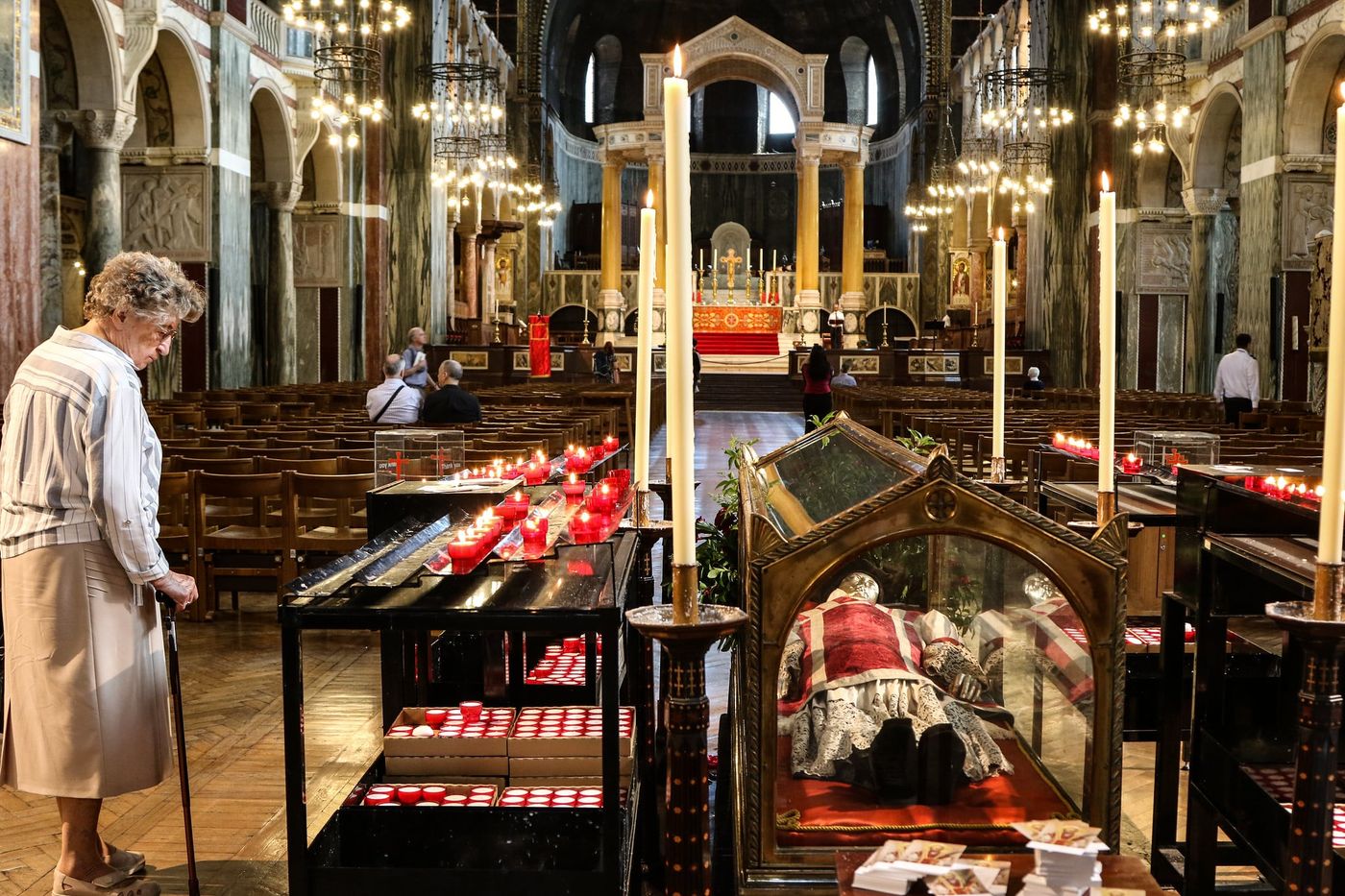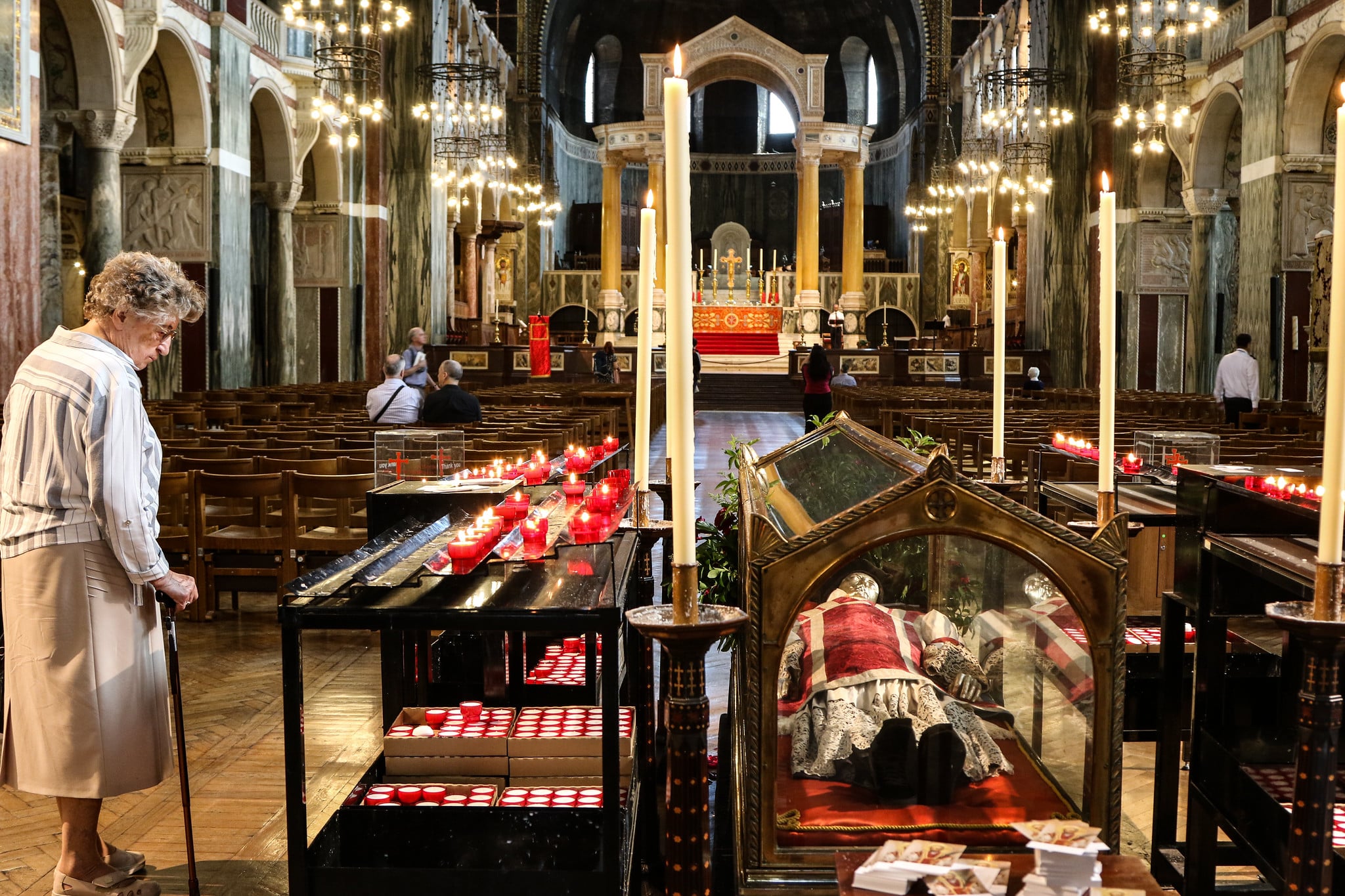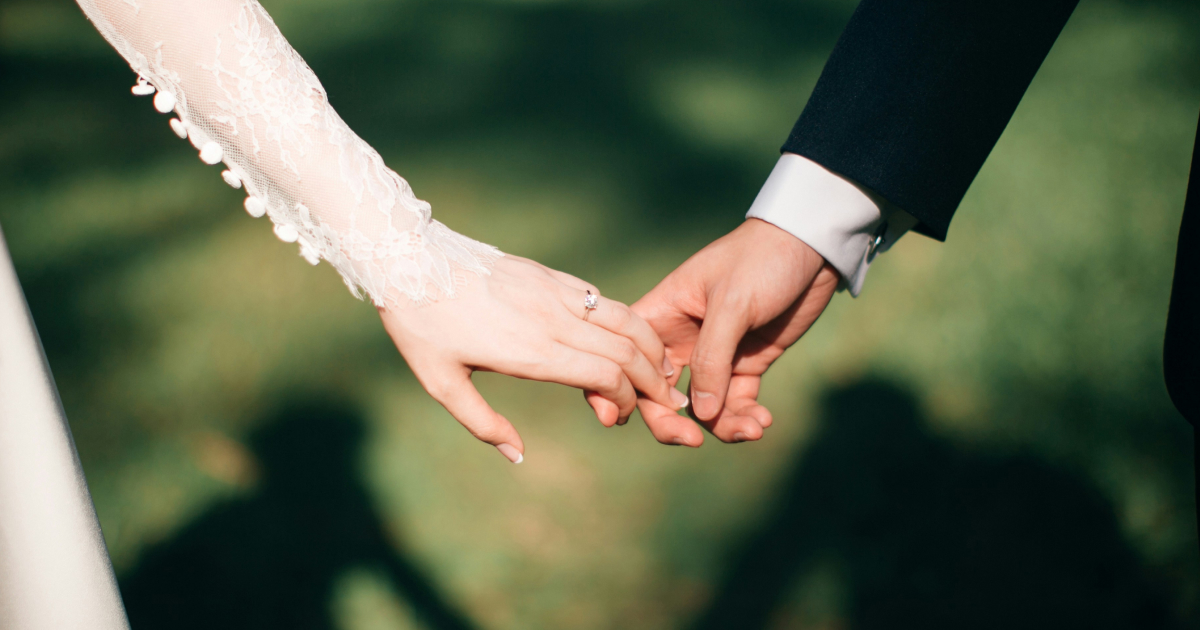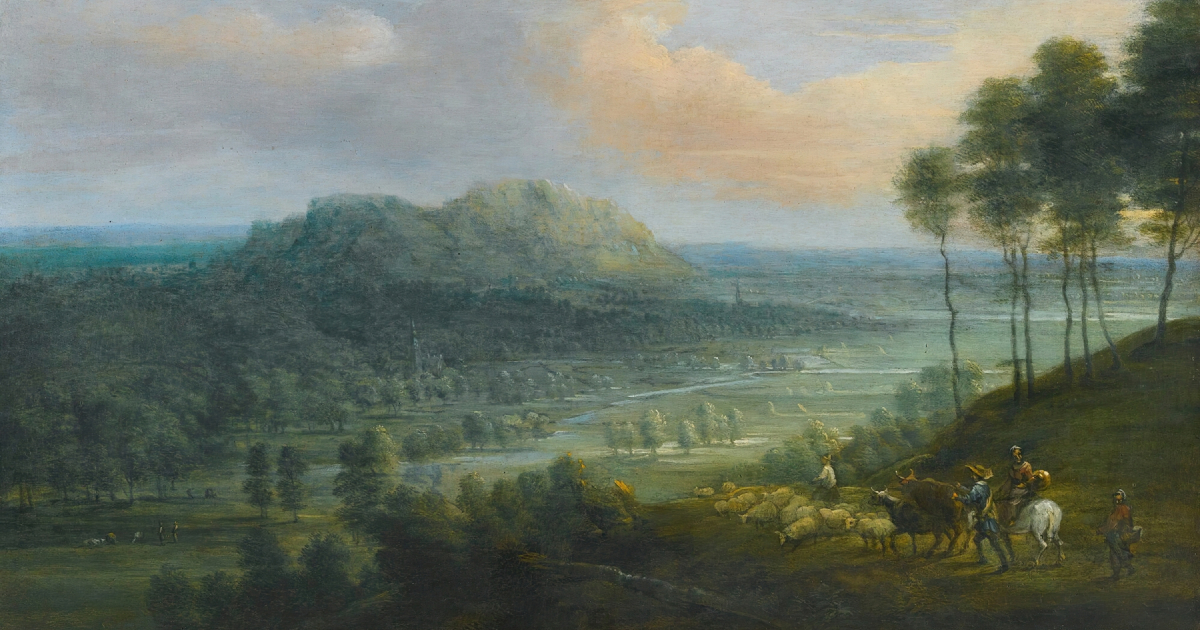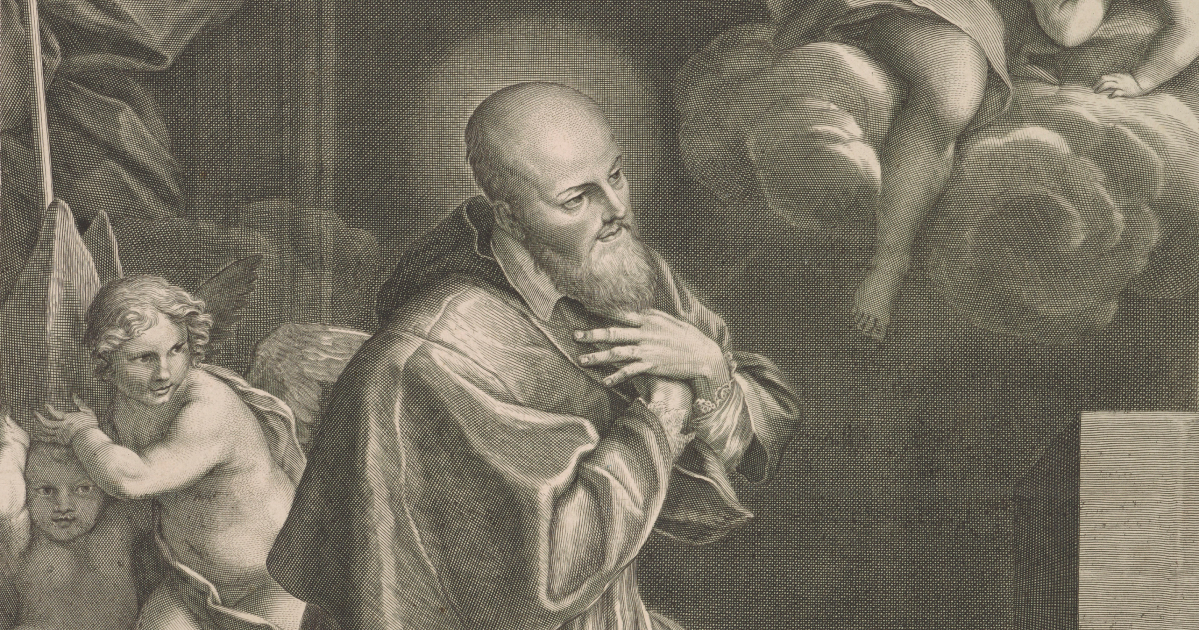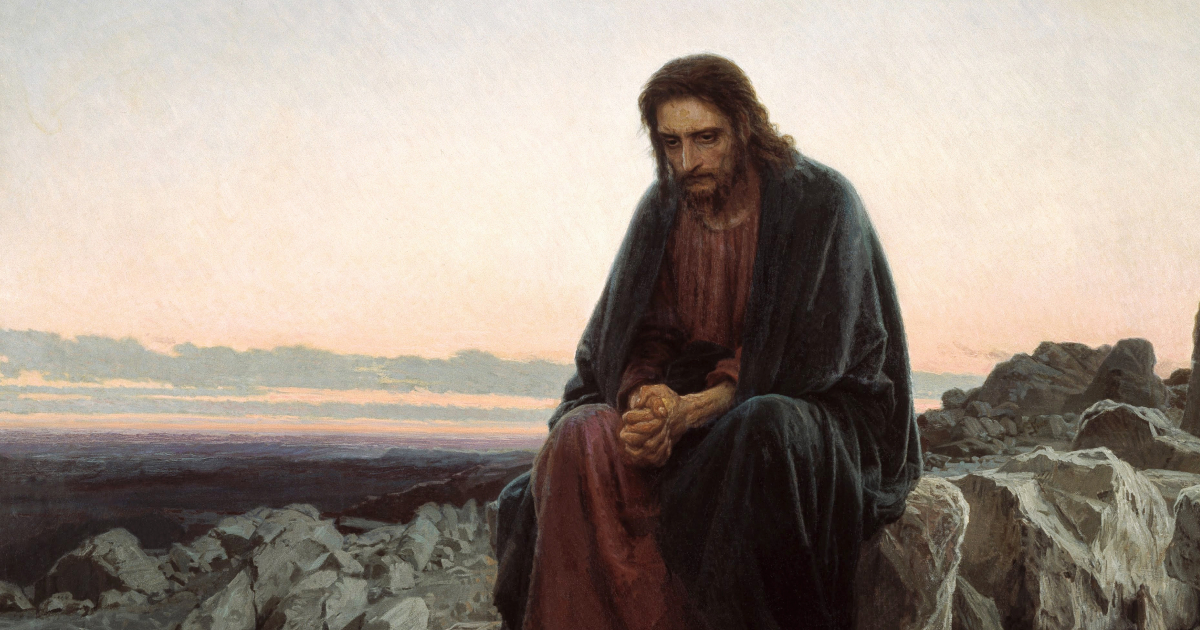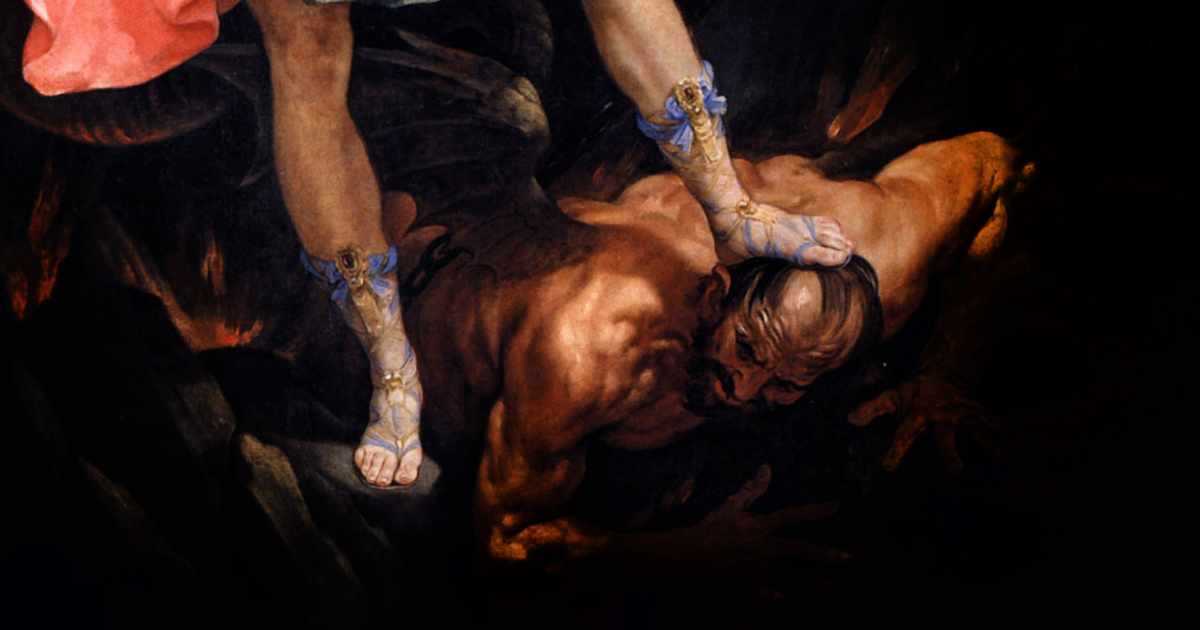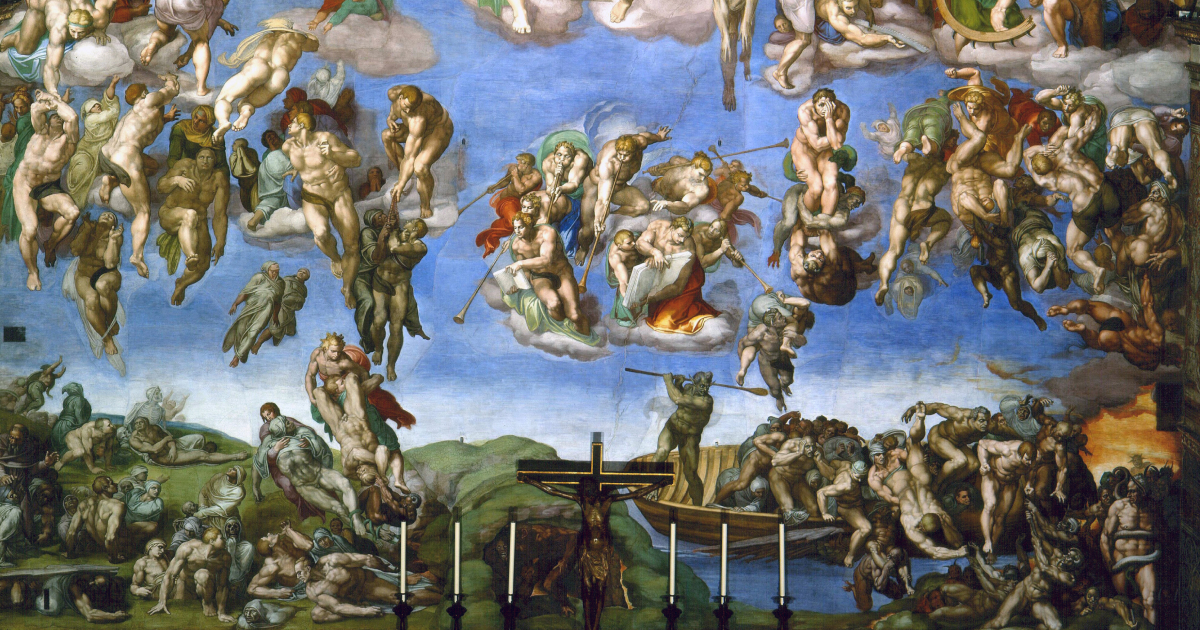This wonderful Feast of All Saints brings me in gratitude to the example of one particular group – our own Douai Martyrs. Their example has repercussions for Catholics to this very day, in fact more so than ever.
St John Southworth turns out to have been one of my unknown unknowns. I didn’t know that when I met him some seismic shift would be set off in my understanding of history, politics and the Catholic Church. But bumping into him, as I did one afternoon in Westminster Cathedral, turned out to be a catalyst in the adventure that was to become my conversion.
Through him I also met the Douai martyrs, along with a reconfiguration of the way I had understood the history of the 16th and 17th centuries.
I bumped into his dead body as it happened, unexpectedly. On my visits to London, it was my habit (before I became a Catholic) of going to say my prayers in Westminster Cathedral. It had an atmosphere of prayer and holiness that St Paul’s and Westminster Abbey were devoid of. They had a strange but unmistakable spiritual vacancy.
However, I hadn’t been prepared for almost literally stumbling across a coffin as I came through the west doors. In it lay a dead priest, St John Southworth, who had ministered to the poor of that area and who was hanged, drawn and quartered in 1654.
The Douai Martyrs are not greatly known among Anglicans.
They were priests who were or who had become Catholic, and studied at the English College in Douai, northern France. In total, 158 men were martyred on their return to England between the years 1577 and 1680.
After learning briefly the facts of St John’s life and asking for his prayers, I went away and began to read more carefully about these Catholics who were politically murdered. A whole new world opened up. In general, awareness of the martyrdom of Catholic priests during the years of persecution does not stretch much further in conversation than comparing numbers of Protestants executed under Queen Mary with those under Elizabeth. Context, purpose and motive are usually a sophistication too far. But why the state persecutes and kills is as important as the actions themselves.
The argument in favour of the persecuting state is always posed as a matter defence of the realm, a matter of national security. Even on its own terms this approach is not wholly convincing. But it masked what other issues might lie in the shadows. Not everything is power politics. The state appeared to be terrified of the Mass and what it stood for.
Catholicism makes more important claims on the allegiance of the soul, heart and mind than it does upon political and national allegiance.
Anglicanism was specifically constructed by the state as a way of taming Christianity and harnessing the disparate forces of anti-Catholic antipathy. On the whole it has worked very well to achieve its goal. There have been some rare and a powerful exceptions that have challenged the adequacy of its self-understanding; Wesley at one end and Newman at the other for example.
But the intention has always to defend the state’s status quo with the veneer of tamed Christianity.
My culturally informed sympathy and affection for Anglicanism was dealt severe blow as I re-read history through Catholic eyes. I also discovered St Robert Southwell who led me to St Edward Campion. He was the most extraordinary man: brave, intelligent, spiritually profound and indomitably courageous.
Aware the state feared treason, the Douai priests constructed an apologia, affirming their political allegiance to the Tudor dynasty, and making it clear that their priority was the celebration of the Mass and they had no interest in overthrowing the state.
But the Elizabethan state was also a police state run by the Cecils, father and son, with ruthless efficiency in the name of the Tudor dynasty and the Protestant settlement it has created to legitimise itself. The state had all power, but was desperate also to win the philosophical and theological argument to preserve its claims to popular legitimacy.
Edmund Campion had been an intellectual and political Protestant high-flyer before he became a Catholic. His conversion shocked his contemporaries. When he was discovered and detained back in Englandit was not enough to restrain him, the state set out to humiliate him in order to destroy all he stood for.
Exhausted and crushed by torture he was wheeled out into the public square for a series of theological debates with the best intellectuals the establishment could muster. Wrecked by his inquisitors, without notes, and hands bound, he outfaced and out-argued the best they presented.
Evelyn Waugh sums up the aftermath: “Campion had seen off six leading opponents. With every resource the Queen’s advisers could muster, they had failed to silence an opponent whose intellect, memory and patience had kept them all at bay ... (so) the Privy Council now turned back to torture, and a trial for treason against the state. Unable to ridicule him, it would take him apart at Tyburn. Order had been given ‘to put them to the rack.”
Reading the transcripts of the debates that remain is a profoundly moving exercise. The relationship between Christians and the state has a long and complex history.
On being presented with the issue of taxation and personal allegiance, Jesus warned that a primary religious task was to distinguish between the legitimate fiscal and political claims of the state and the legitimate and all-consuming demands of God. Christians have ever since rightly been on high alert over the intentions of the state.
In general it appears that as long as the state is not threatened by Christ, it will tolerate Christianity as a private and personal spirituality. There are times when the ambitions of the state have been modest and Christians have been left alone. But there are other periods in history and in particular during the last century, when the ambitions of the state have been in direct competition to the Christian world view and ethics.
Both Communism and Fascism developed an intense preoccupation to control the actions and consciousness of the public.
In a way that many in my generation failed to anticipate, the culture wars have erupted as part of the new, and highly threatening modification of the political ambitions of the Left.
They are being waged once again not only over issues of state power, but more particularly over the power of the state to control what the individual thinks and believes.
The Mass is not the main target in our generation. Instead sex and murder and suicide have become the contested arena. Critical theory, gender identity, mass abortions, and now the proposed legalisation of assisted suicide.
There are many Christians who urge accommodation with the state. It is painful to face up to the fact that it our day, it may be about to engage in a hubristic over-reach. It has begun to have ambitions to police our thoughts and the cast of our mind. It is willing to try to peer into our soul to see if we engaging in prayer it has forbidden; or entertaining thoughts that doubt its authority to over what biological sex someone has been made; or resist it new claims to legitimise the state enabled culling of the old, ill, depressed or useless.
Like St Edmund Campion, the Church still needs brave clear-thinking people to speak the truth to the over-weaning power of a state drunk on its own hubristic ambitions, willing to crush them for doing so.
It is not up to us to decide what price we are going to be asked to pay for our faithfulness. But the fact and example of martyrdom at the hands of the state in earlier generations, offers both a warning that for those willing to be faithful Catholics, the stakes can be very high.
(Photo courtesy of Fr Lawrence Lew OP)
This wonderful Feast of All Saints brings me in gratitude to the example of one particular group – our own Douai Martyrs. Their example has repercussions for Catholics to this very day, in fact more so than ever.
St John Southworth turns out to have been one of my unknown unknowns. I didn’t know that when I met him some seismic shift would be set off in my understanding of history, politics and the Catholic Church. But bumping into him, as I did one afternoon in Westminster Cathedral, turned out to be a catalyst in the adventure that was to become my conversion.
Through him I also met the Douai martyrs, along with a reconfiguration of the way I had understood the history of the 16th and 17th centuries.
I bumped into his dead body as it happened, unexpectedly. On my visits to London, it was my habit (before I became a Catholic) of going to say my prayers in Westminster Cathedral. It had an atmosphere of prayer and holiness that St Paul’s and Westminster Abbey were devoid of. They had a strange but unmistakable spiritual vacancy.
However, I hadn’t been prepared for almost literally stumbling across a coffin as I came through the west doors. In it lay a dead priest, St John Southworth, who had ministered to the poor of that area and who was hanged, drawn and quartered in 1654.
The Douai Martyrs are not greatly known among Anglicans.
They were priests who were or who had become Catholic, and studied at the English College in Douai, northern France. In total, 158 men were martyred on their return to England between the years 1577 and 1680.
After learning briefly the facts of St John’s life and asking for his prayers, I went away and began to read more carefully about these Catholics who were politically murdered. A whole new world opened up. In general, awareness of the martyrdom of Catholic priests during the years of persecution does not stretch much further in conversation than comparing numbers of Protestants executed under Queen Mary with those under Elizabeth. Context, purpose and motive are usually a sophistication too far. But why the state persecutes and kills is as important as the actions themselves.
The argument in favour of the persecuting state is always posed as a matter defence of the realm, a matter of national security. Even on its own terms this approach is not wholly convincing. But it masked what other issues might lie in the shadows. Not everything is power politics. The state appeared to be terrified of the Mass and what it stood for.
Catholicism makes more important claims on the allegiance of the soul, heart and mind than it does upon political and national allegiance.
Anglicanism was specifically constructed by the state as a way of taming Christianity and harnessing the disparate forces of anti-Catholic antipathy. On the whole it has worked very well to achieve its goal. There have been some rare and a powerful exceptions that have challenged the adequacy of its self-understanding; Wesley at one end and Newman at the other for example.
But the intention has always to defend the state’s status quo with the veneer of tamed Christianity.
My culturally informed sympathy and affection for Anglicanism was dealt severe blow as I re-read history through Catholic eyes. I also discovered St Robert Southwell who led me to St Edward Campion. He was the most extraordinary man: brave, intelligent, spiritually profound and indomitably courageous.
Aware the state feared treason, the Douai priests constructed an apologia, affirming their political allegiance to the Tudor dynasty, and making it clear that their priority was the celebration of the Mass and they had no interest in overthrowing the state.
But the Elizabethan state was also a police state run by the Cecils, father and son, with ruthless efficiency in the name of the Tudor dynasty and the Protestant settlement it has created to legitimise itself. The state had all power, but was desperate also to win the philosophical and theological argument to preserve its claims to popular legitimacy.
Edmund Campion had been an intellectual and political Protestant high-flyer before he became a Catholic. His conversion shocked his contemporaries. When he was discovered and detained back in Englandit was not enough to restrain him, the state set out to humiliate him in order to destroy all he stood for.
Exhausted and crushed by torture he was wheeled out into the public square for a series of theological debates with the best intellectuals the establishment could muster. Wrecked by his inquisitors, without notes, and hands bound, he outfaced and out-argued the best they presented.
Evelyn Waugh sums up the aftermath: “Campion had seen off six leading opponents. With every resource the Queen’s advisers could muster, they had failed to silence an opponent whose intellect, memory and patience had kept them all at bay ... (so) the Privy Council now turned back to torture, and a trial for treason against the state. Unable to ridicule him, it would take him apart at Tyburn. Order had been given ‘to put them to the rack.”
Reading the transcripts of the debates that remain is a profoundly moving exercise. The relationship between Christians and the state has a long and complex history.
On being presented with the issue of taxation and personal allegiance, Jesus warned that a primary religious task was to distinguish between the legitimate fiscal and political claims of the state and the legitimate and all-consuming demands of God. Christians have ever since rightly been on high alert over the intentions of the state.
In general it appears that as long as the state is not threatened by Christ, it will tolerate Christianity as a private and personal spirituality. There are times when the ambitions of the state have been modest and Christians have been left alone. But there are other periods in history and in particular during the last century, when the ambitions of the state have been in direct competition to the Christian world view and ethics.
Both Communism and Fascism developed an intense preoccupation to control the actions and consciousness of the public.
In a way that many in my generation failed to anticipate, the culture wars have erupted as part of the new, and highly threatening modification of the political ambitions of the Left.
They are being waged once again not only over issues of state power, but more particularly over the power of the state to control what the individual thinks and believes.
The Mass is not the main target in our generation. Instead sex and murder and suicide have become the contested arena. Critical theory, gender identity, mass abortions, and now the proposed legalisation of assisted suicide.
There are many Christians who urge accommodation with the state. It is painful to face up to the fact that it our day, it may be about to engage in a hubristic over-reach. It has begun to have ambitions to police our thoughts and the cast of our mind. It is willing to try to peer into our soul to see if we engaging in prayer it has forbidden; or entertaining thoughts that doubt its authority to over what biological sex someone has been made; or resist it new claims to legitimise the state enabled culling of the old, ill, depressed or useless.
Like St Edmund Campion, the Church still needs brave clear-thinking people to speak the truth to the over-weaning power of a state drunk on its own hubristic ambitions, willing to crush them for doing so.
It is not up to us to decide what price we are going to be asked to pay for our faithfulness. But the fact and example of martyrdom at the hands of the state in earlier generations, offers both a warning that for those willing to be faithful Catholics, the stakes can be very high.
<em>(Photo courtesy of Fr Lawrence Lew OP)</em>





